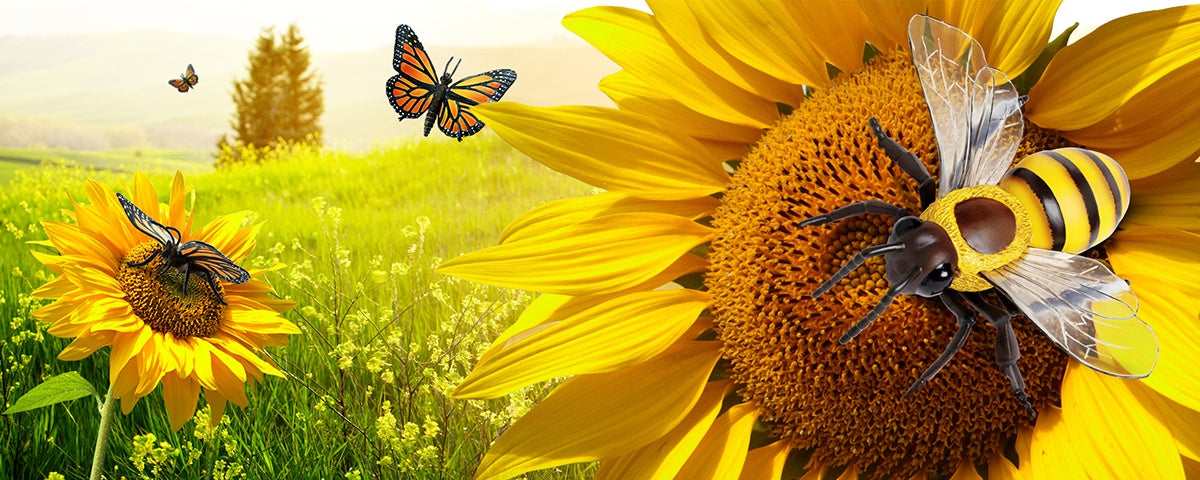
Pollinator Week - What's Making Pollinators Weak?
Pollinator Week is celebrated in June, and is dedicated to bringing awareness to the plight of the pollinators – all over the world, pollinator populations are plummeting, and urgent action is needed to help solve this issue, because pollinators are more important than many people realize.
First things first – what’s a pollinator? For something so important, it’s a good idea that you know what it is, right? A pollinator is any animal that aids in the reproduction of flowering plants. By moving pollen from the male parts of a plant’s flower to the female parts of another plant’s flower, the plants are able to reproduce by making seeds.
When a pollinator animal lands on a flower to collect nectar to eat, pollen will become attached to its body, and in turn will be transported to the next flower that the animal travels to. Insects are the most well-known pollinators, particularly bees and butterflies. However, other animals also take part in pollination, including hummingbirds, and some species of bats.
Why are these animals important to humans? Because plants that depend on pollination play vital roles in our everyday lives, especially those that produce fruits and vegetables that we eat. Pollinated plants include more than 1200 different agricultural crops, which amounts to about 75 to 80% of all the world’s crops. It is believed that one out of every three bites of food consumed in the world is the result of a pollinator’s handiwork.
So, it makes sense to keep them around. Unfortunately, many of these species responsible for pollination are in decline, and have been for decades. Bees in particular have been hit very hard, and are mysteriously disappearing at very rapid rates. Why is this happening? Nobody knows for sure. There are many theories, including pesticide use, pollution, climate change, and disease. More research is needed so a cause can be determined and, hopefully, the process can be reversed.
The fact is, without pollinators, we’d all be in trouble. Most of the fruits and vegetables we eat depend on pollinators, and without them, humanity’s prospects don’t look too good. So what can you do? Help raise awareness, especially during Pollinator Week, and check out pollinator.org for more info on how you can get involved to help protect our pollinators!




 Facebook
Facebook
 Twitter
Twitter
 Instagram
Instagram
